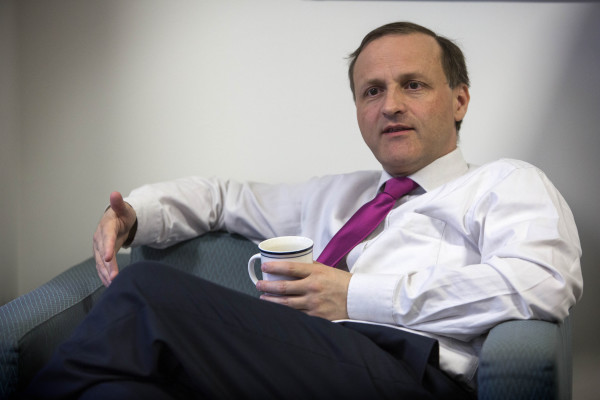

Steve Webb has urged providers to be “as close to the advice boundary” as possible in order to help the growing demographic in need of mass-market guidance.
Speaking at the Tisa Annual Conference yesterday (December 3), former pensions minister Mr Webb said providers were “too afraid” of the advice boundary and should start to provide guidance to those who need help but who are priced out of advice.
Mr Webb, who is now director of public policy at Royal London, said: “We need to be as close to the advice boundary as we can get. We are all stopping so far short because compliance departments are petrified we will step over the line and get sued.
“The Financial Conduct Authority has a problem in its well-meaning regulation of the advice/guidance barrier...are we really protecting consumers by not steering them in the right direction?”
He said the introduction of the auto-enrolment scheme in 2012 and pension freedoms in 2015 had created a “whole bunch of people” who were making serious decisions about their finances and who needed guidance.
To date 10m employees have been enrolled into a workplace pension while pension freedom rules mean those aged over 55 no longer have to purchase an annuity to access their pension income but can instead enter drawdown or take a cash amount.
Mr Webb said: “The majority of ‘at retirement’ decisions are taken without advice and even those with an existing adviser may not want to pay for one-off advice, such as for drawdown.
“But this new advice gap is where more guidance could help. Let’s have mass-market guidance, let’s soften this boundary.”
He went as far as to back this on an individual client basis, arguing the “closer we can get to something that looks like personalised advice on an individual guidance basis, the better”.
Currently the boundary between regulated guidance and advice lies on whether or not there has been a personal recommendation. People who don't receive advice don't have recourse to the regulated complaints bodies if something goes wrong.
Alistair Cunningham, financial planning director at Wingate Financial Planning, said: “I am not precious about financial advisers being the only source of information but as the FCA has outlined there is scope for harm where consumers might believe they are getting a personal recommendation, when that’s not the case.
“The main problem is you either need high quality people to deliver advice or guidance or a robust process.
“When both these things are lacking, or incentives are stacked against good consumer outcomes such as sales targets, there is a problem.”
Alan Chan, director at IFS Wealth and Pensions, agreed there was a “fine balance” that needed to be struck but argued if providers got close to the advice boundary the lines would become “dangerously blurred”.
He added: “This may lead to them believing that they don’t need professional advice because they are of the mistaken belief that they’ve already got it.”
But Martin Bamford, head of client education at Informed Choice, thought providers actually had a duty to move as close to the boundary as possible as they had resources and capabilities to develop innovative ways to address the advice gap which were largely unavailable to advisers.
The FCA has been approached for comment.
imogen.tew@ft.com
What do you think about the issues raised by this story? Email us on fa.letters@ft.com to let us know.



